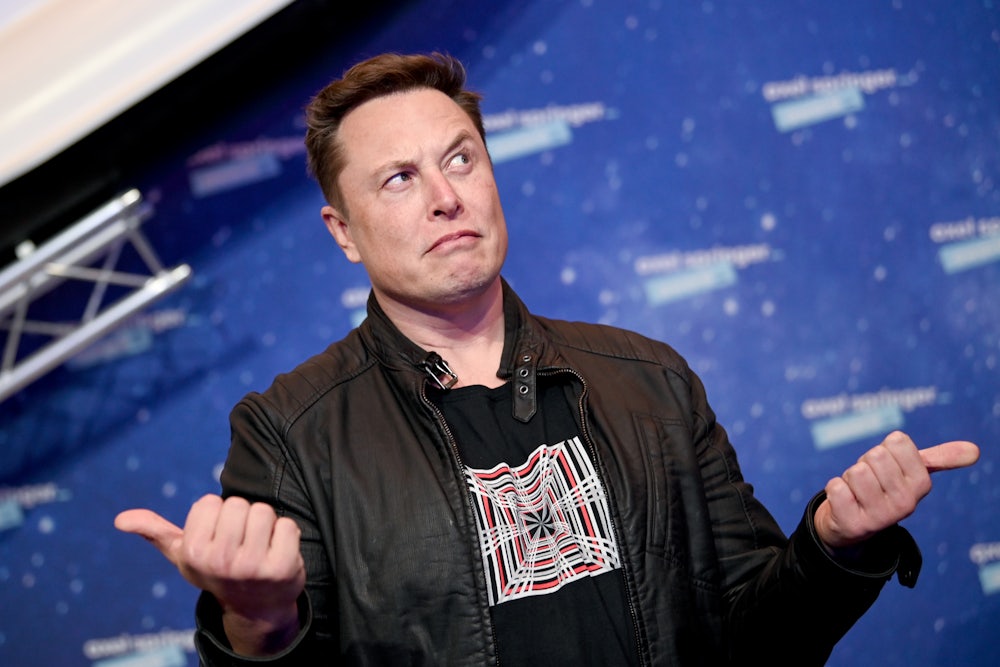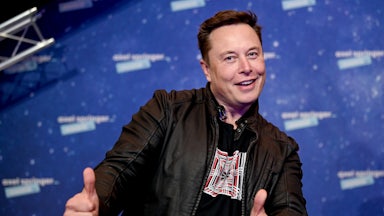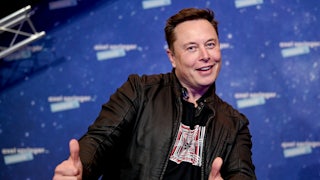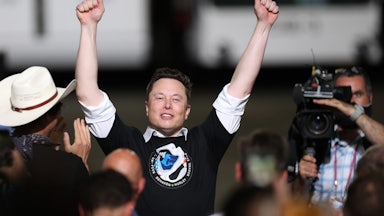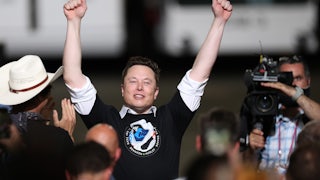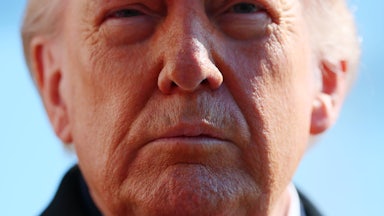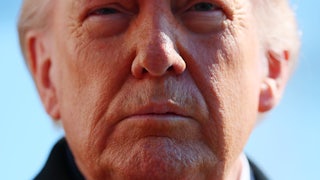Asked during a town hall meeting about the future of Twitter in the wake of Monday’s seismic news that Elon Musk, the richest person in the world, had bought the social network, current CEO Parag Agrawal was cagey. “Once the deal closes, we don’t know which direction the platform will go,” he said.
At that moment, Agrawal was responding to a specific question about whether the company’s board expected Donald Trump to have his account reinstated; he was famously banned from the platform after inciting a riot at the United States Capitol on January 6 of last year. But Agrawal’s answer really could have been applied to nearly any question about the future of the social media giant. We do know that, as of Monday, Twitter accepted an offer from Musk to take the company private for about $44 billion, or $54.20 per share, in cash. He will almost certainly formally own the company within a few months. Beyond that? Here’s Agrawal again: “We don’t have all the answers. This is a period of uncertainty.”
On the right, there has been quite a bit of crowing about Musk buying Twitter. The Twitter feed for Tucker Carlson Tonight celebrated Monday’s news by returning to the platform and by making it seem that it had been reinstated as a result of Musk’s stated goal—to have more free speech. (In fact, it got back in Twitter’s good graces by deleting a tweet that misgendered Assistant Secretary of Health and Human Services Rachel Levine.) The general notion that some conservatives seem to hold is that Musk will fire social justice warrior Twitter employees; bring back right-wingers (and assorted cranks and nutcases) who have been banned for hate speech, misinformation, and other violations; and in general stop doing the mostly fake things Republicans and other conservatives have been accusing the company of doing for years, like “shadowbanning.”
Here's what Musk should do:
— Ben Shapiro (@benshapiro) April 26, 2022
- Truth and reconciliation commission revealing past manipulation;
- Algorithmic transparency;
- Fire a LOT of people.
The last is the most crucial -- if you leave in place the woke progressives who control implementation, leadership matters little.
Mostly, though, they seem to be celebrating simply because Musk buying Twitter is making a lot of liberals and progressives angry. Why are liberals and progressives upset? Largely for the same reason that right-wingers are dancing in the streets: wildly outsize expectations. In the case of liberals, they seem to believe that Musk will take control of Twitter and reopen the gates to the barbarians, and the site will become a hellscape of misinformation and trolling—one, it could be said, built in Musk’s own image. Another way of thinking about this is to say that on the right, Musk is viewed as a figure of chaotic good, while on the left he is viewed as someone embodying chaotic evil. I, meanwhile, keep coming back to Agrawal. This is a period of uncertainty—or, to put it somewhat differently, it’s just chaos from all directions.
Musk is an insanely rich person and a genuine weirdo who seems to be, like many extremely rich people, governed entirely by momentary whims. He often uses Twitter to act on whatever weird idea flashes across his brainpan, often getting himself in big trouble in the process. Some of his greatest hits include the time he claimed to have secured funding to take his primary source of extreme wealth, the electric car company Tesla, private. There is also the time he responded to criticism by publicly insinuating that a diver who was trying to save some Thai schoolchildren who were trapped in a cave was a pedophile. Elon just loves him some Twitter! It seems to be both his primary hobby—he spends a lot of time shitposting, to the delight of his millions of obsessive fans—and a source of income: He has used it, quite literally, to become the richest person on the planet. His tweets move markets and, in many cases, line his pockets.
Musk has set ambitious goals. He has said he wants to unlock Twitter’s “true potential,” whatever that is. He has mostly yammered on about how he wants the platform to be committed to “free speech,” which he has said is simply “what matches law.” In a statement announcing the deal on Monday, he was triumphant on this count. “Free speech is the bedrock of a functioning democracy, and Twitter is the digital town square where matters vital to the future of humanity are debated,” Musk said.
Musk’s own personal record on free speech, as many have pointed out, tells a different story about his commitments—he has particularly little patience for speech that disparages him or his companies, while his employees have been retaliated against for bringing racist, sexist, or unsafe working conditions to light.
But it’s hard to discern much substance from his flurry of public comments about what he plans to do with Twitter. He simply hasn’t said, for instance, what Twitter is doing now with regard to free speech that he would improve upon. In general, he gives the impression of someone spouting off at a party about something they’ve skimmed a Wikipedia page about.
What does his attested commitment to free speech mean in practice? No one actually knows! Musk and his defenders have acted as if the meaning of these terms is obvious and innate—as opposed to subjective and in flux—but when he takes over Twitter, he will be faced with many challenges, some great and some small, in which his interpretation of the principle will be tested. Over time, it is theoretically possible that there will be an ironclad principle in place—more likely, the platform will simply do what it has for several years, leapfrogging from crisis to crisis, muddling along without much consistency or care.
/ In honor of Earth Day, TNR’s climate coverage is free to registered users until April 29. Start reading now.
One of his ideas involves making the company’s algorithm more transparent—this is not a terrible idea in theory, given that its opacity fuels the suspicions of those who believe themselves to be “shadowbanned.” It’s not clear that he’ll be able to pull off this feat, however: There isn’t a single algorithm governing what content Twitter users do or don’t see. He has also said he wants to “authenticate all humans,” which is a horrible idea in theory and practice—particularly if you care about democracy and the potential for social media to be used by anonymous whistleblowers. This, too, seems impossible to pull off. And of course, he has talked a great deal about “free speech” but without much precision. It’s certainly possible that Twitter will somehow get much worse—as difficult to imagine as that is!—but it seems far more likely that Musk will just muddle through it, doing some crazy things and some less crazy things, most of which are based on whims.
There’s a staggering list of unknowns. Twitter’s user base may not enjoy the platform if Musk’s idea of “free speech” is just an unrestrained cacophony of trolls and scammers. If he runs the company in such a whimsical fashion, it might alienate the engineers who keep the Twitter machine going “brrrrrr,” and prompt a brain drain. And what’s to become of Tesla now that Musk has a new toy? The electric vehicle firm’s stock value fell precipitously in response to Musk’s Twitter deal. So will Twitter be worse after Musk takes over? It very well might, but probably much less than many of us secretly hope for. We’d all be better off if Musk left the site a smoldering ruin.
